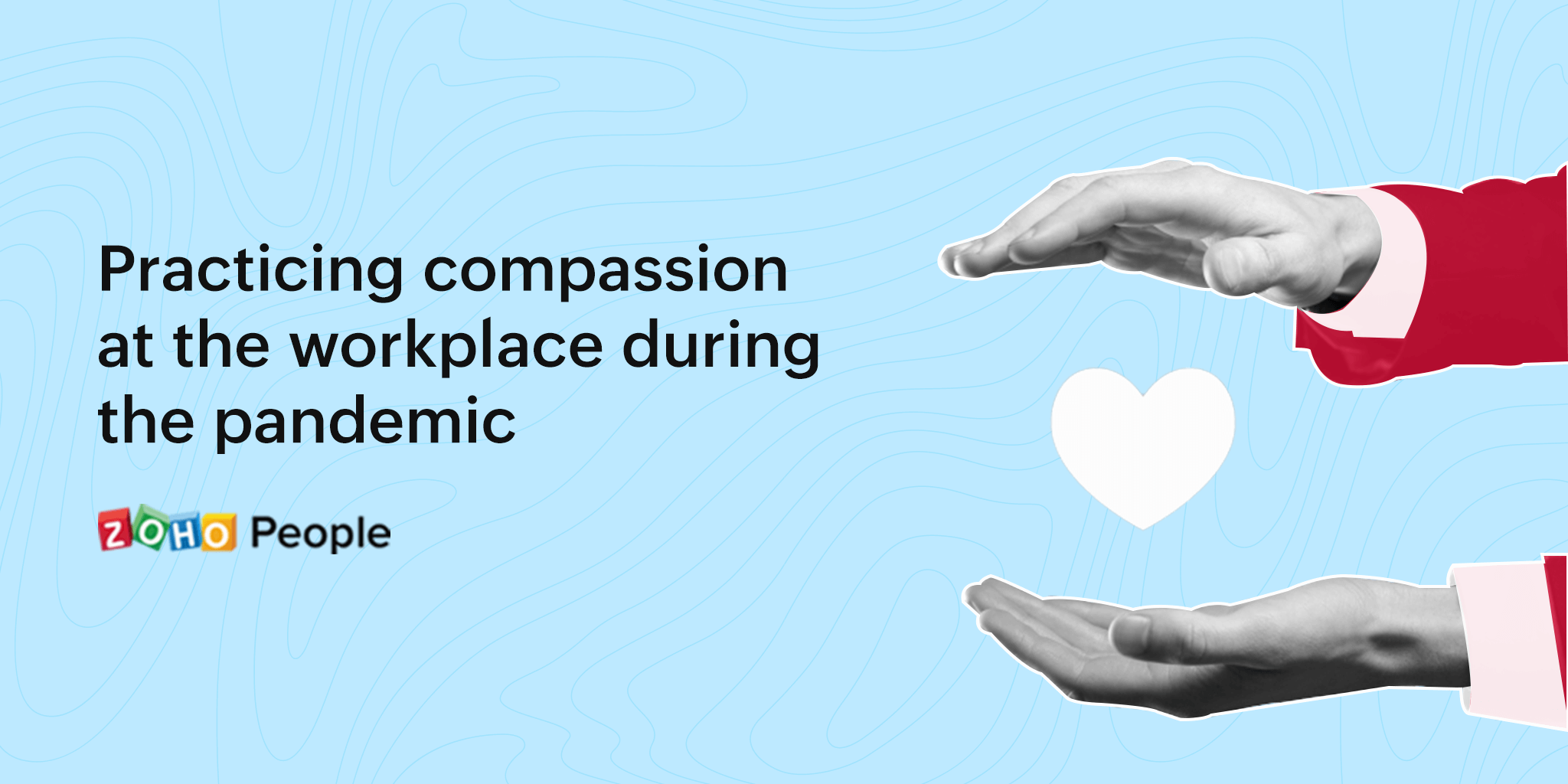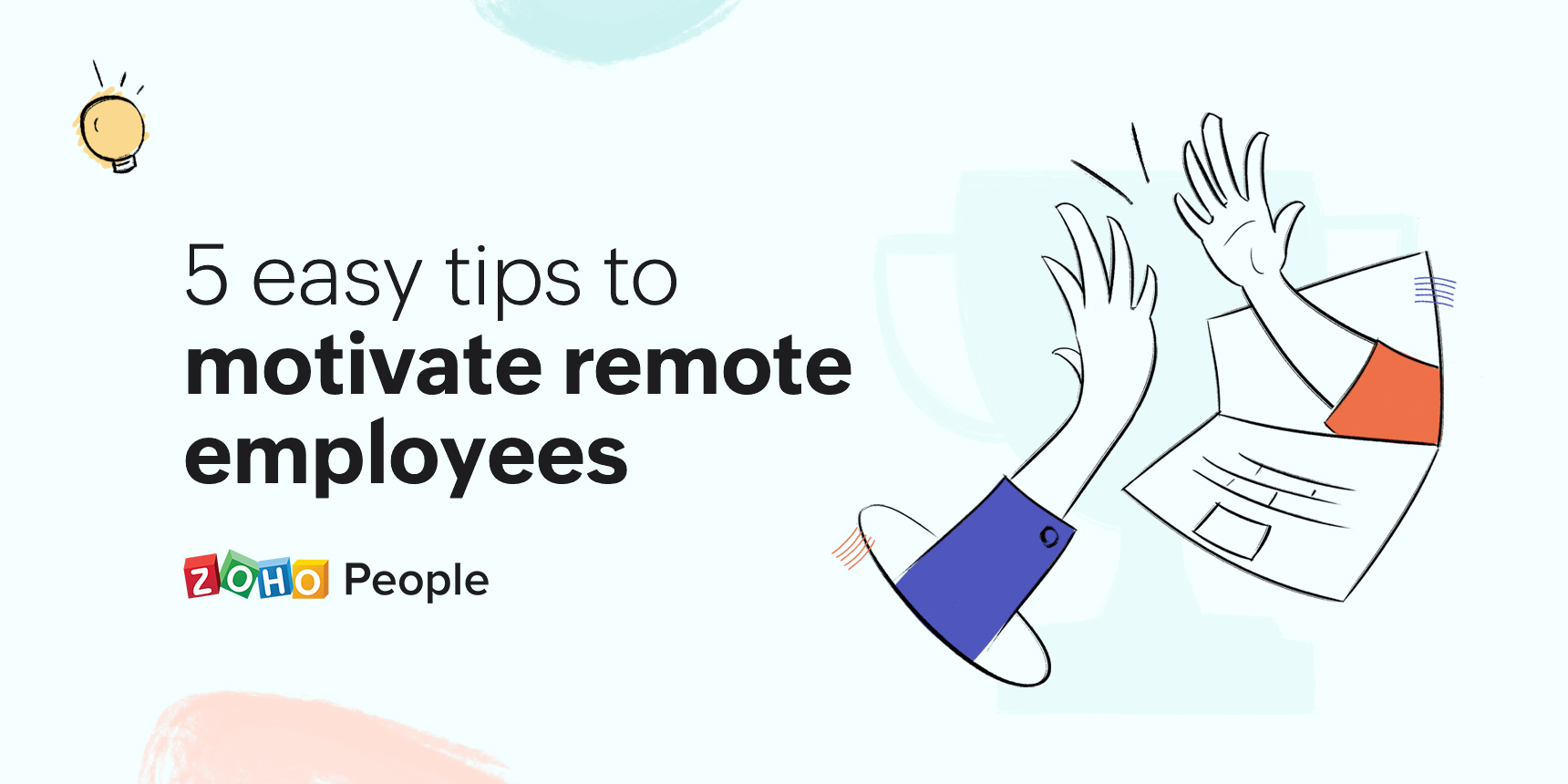- HOME
- HR insights
- Tips on being more compassionate toward your employees
Tips on being more compassionate toward your employees
- Last Updated : August 23, 2023
- 2.6K Views
- 4 Min Read

As the COVID-19 situation continues to unfold across the world, employees everywhere have been struggling to maintain their mental health. Naturally, the primary focus for many has been on keeping themselves and their loved ones healthy. As an employer, it's important to acknowledge your employees' struggles and let them know that they are not alone. The situation will only be made worse if your workers feel like they have to suppress their feelings or, worse, like their hardships are being trivialized. This is where compassion comes in. Compassionate workplace practices put employees first through supportive policies and empathetic communication. Here are some tips to help you build a more compassionate workplace:
Acknowledge the struggles your employees face
Just showing that you care goes a long way. With the pandemic, for example, you can make an announcement acknowledging how it's okay to feel off during unprecedented times like this, even if you haven't been affected by the virus directly. This can be a huge relief to employees, especially when it's echoed by top-level leaders like the CEO or CHRO. You don't always have to offer a solution. Just letting them know that you are there in case they need anything can help your employees feel supported and encouraged.
That said, if you want to do something for your employees, here are some practices that they might appreciate:
Offer paid leave to employees if they or their close relatives test positive for COVID-19
Restrict work-related meetings and calls to usual working hours
Offer additional time off for mental health purposes, allowing employees to destress and take a break
Encourage employees to sign off from work as soon as they complete their tasks
Don't underestimate random acts of kindness
“In a world where you can be anything, be kind.” - Jennifer Dukes Lee
Almost everybody that we know is trying their best to navigate the many transitions brought about by the pandemic. At times like these, being kind to your employees can mean a lot to them and turn their mood around. Your acts of kindness don't need to be anything big or fancy. It could be something as simple as allowing employees to sign off from work early on Fridays or postponing a meeting scheduled on Friday to Monday. Offering public appreciation, saying thank you, giving random compliments, inviting your team for a virtual lunch—these are all small ways to show how grateful you are for the hard work your employees have put in over the last year.
Practice compassionate listening
As an HR manager, it's good for employees to know that you are someone they can talk to. There's no need to offer any solutions or suggestions unless they ask your advice. Sometimes, just venting their frustrations can make your employees feel lighter. Be patient throughout the conversation without rushing to end it. You can encourage them to reach out anonymously if they are worried about speaking openly. Of course, if your workforce is large, you may not be able to help everybody. This is where an employee resource group (ERG) could be beneficial. ERGs should be led by volunteers who are resilient, self-motivated, patient, and willing to listen. It's only by listening to your employees that you'll know what other resources to offer, such as support from professional mental health counselors.
Encourage supportive team management
Large gestures of support are great, but it's really the small moments every day that add up to make the biggest difference. As a prerequisite, establish open communication so that your employees feel free to share their problems. Then, talk to your team leaders. They are the ones who will have the biggest impact on an employee's day-to-day experience. Encourage them to be reasonable when assigning work because of the potential for burnout. If possible, low priority tasks should be saved for later. It's also important for teams to stay in touch with each other regularly, and these initiatives start with the team managers. In case an employee is not able to complete their tasks due to COVID-19, allow them to share their work responsibilities with others on the team. However, ensure that the coworker receiving this additional responsibility is not burdened either. These small gestures will go a long way toward helping your employees feel less stressed during times of crisis.
Improve collaboration
As your employees work remotely, don't let collaboration and workplace relationships suffer. Connecting with their coworkers helps your employees take their minds off the pandemic and relax. Virtual lunches and coffee breaks can be a great start. The more employees interact, the better they'll be able to help each other balance the team's overall workload. Encourage employees with similar job responsibilities to brainstorm ideas and work together virtually. And lastly, be sure to collect feedback from all members of the team and encourage open discussion on what improvements can be made to maintain everyone's mental health while also getting their work done.
Wrapping up
As employees continue to work despite the challenges brought about by the pandemic, it's your duty as an employer to understand employee concerns and help those who are in need. When there's compassion in your workplace, your employees will be able to better manage their personal and professional lives, and they will also have more bandwidth to offer support to their peers. Compassion usually leads to more compassion, after all.
What are some ways you're practicing compassion at your workplace? Let us know in the comments section below!
 Tarika
TarikaContent Specialist at Zoho People


